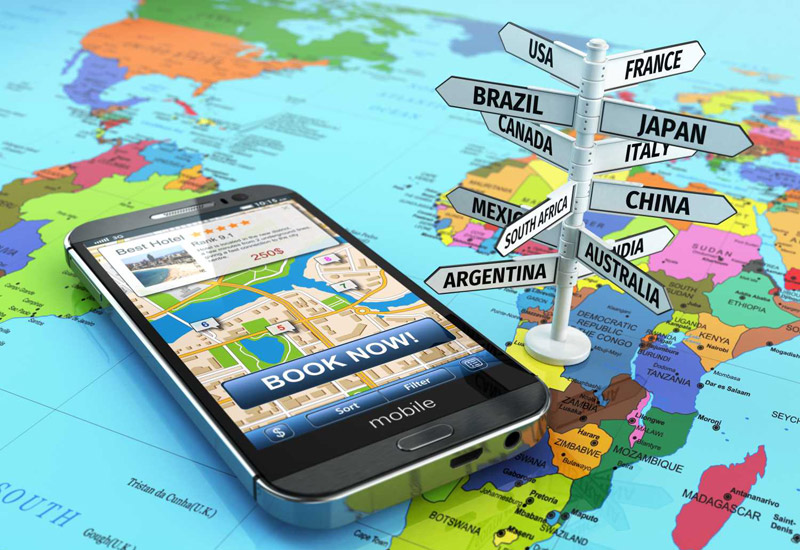In this digital age, online booking has arguably replaced traditional booking methods such as walk-ins and physical travel agencies. For one, Mohammed Khoori, general manager of Golden Sands Hotel Apartments in Dubai, told Hotelier Middle East during Arabian Travel Market that the hotel’s focus for 2016 is increasing its online bookings by finding new online travel agency partners to work with. While the property currently receives 40-45% of its bookings online, Khoori predicted that this figure will increase to 80% within the next 10 years.
Yet, as the consumer moves towards online booking, many hoteliers are beginning to capitalise on this by moving their business away from OTAs, and looking for ways to drive direct booking traffic to their own website. This shift is often attributed by hoteliers to OTA fees, which are often considered to be high. Indeed, in Hotelier Middle East’s recent poll on the subject, nearly a quarter of those who voted, 22.2%, agreed that OTA fees are currently too high.
Asked by Hotelier Middle East what benefit hoteliers receive for these fees, Expedia senior vice president Melissa Maher offered insight into the relationship: “We bring a global customer base to our partners in the Middle East from our presence in 75+ countries, with 200 points of sale across 35 languages and around 80% of the demand we bring to these hoteliers is international.”

| Advertisement |
“We also provide hotels with the resources to optimise their revenue — our technology investment enables owners to use data and analytics to be strategic in appealing to customers to drive revenue,” Maher continued. “This global scale gives us an immense amount of data and insight for our partners. This comes via our market management team who provide consultation to hotel partners, as well as our investments in Expedia Partner Central (EPC).
“EPC is our supplier tool which enables hotels to manage their offers and rates, and provides a tonne of great market data and intelligence. It’s a complimentary offer to help our partners meet their goals. For example, EPC’s Market Watch allows a hotel to monitor its competitive set, notifying them of public rate changes. It also lets a hotel know when an Expedia traveller visited their page, but booked somewhere else instead. Another recently launched tool was developed after hoteliers requested the ability to communicate directly with guests. EPC Conversations provides a platform for booked guests and hoteliers to communicate via a message centre.”
Despite Maher’s comment, hotels in the region are indeed shifting towards direct booking through several methods. One is the increase in hotels launching dual language booking platforms. For example, last month Dusit International launched a dual language booking engine, by adding an Arabic language platform (in addition to English) to www.dusit.com.
However, one of the primary methods used by hoteliers this year has been booking campaigns aimed at loyalty programme members. Examples include Hilton Worldwide’s “Stop Clicking Around” promotion, launched in February this year. It offered discounted room rates at 4,500 hotels worldwide, for Hilton HHonors Members who book their stay directly through the Hilton website or HHonors app.
Marriott International also unleased the power of direct booking when it launched the #MarriottTravels promotion in April 2016. This campaign offered free nights and discounts on dining at 50 properties to new and existing members of Marriott’s loyalty programme, Marriott Rewards, when booking directly through the Marriott website. According to Marriott, last year’s direct booking campaign “It Pays to Book Direct”, received more than six million views on YouTube.
According to Expedia’s Maher, however, there are draw backs to direct booking for hoteliers: “Regarding direct booking campaigns, we know hotel brands are feeling pressure to add value to their proposition to owner’s with respect to how much they are charging owners. However, we strongly believe those chains are on a dangerous path, limiting owner/operator choice by not allowing them to decide for themselves whether to extend these member-only rates to Expedia consumers and limiting their ability to manage their business, potentially resulting in revenue loss. Displaying loyalty rates unfenced and prominent on brand.com as the lead-in price also risks confusing consumers. Plus, there is no differentiation for the 14 brands doing this and if consumers are signed up for 14 different loyalty programmes, and booking at 14 different brands, they are loyal to none.”
Nevertheless, direct booking campaigns of this nature, linked as they mostly are to loyalty programmes, present at least one obvious benefit to hotels. It can potentially help increase the number of members in their loyalty programme.
Clearly a concern for hoteliers, since 13.9% of voters in Hotelier Middle East’s poll also recognised the importance of direct booking in order to increase hotel loyalty programme membership numbers.
Commenting on the recent direct booking campaign, Marriott International’s chief sales & marketing officer for the MEA region Neal Jones told Hotelier Middle East: “The simple fact is that you will find the lowest rates across our portfolio when you join Marriott Rewards and book direct. We launched our campaign in order to profile the numerous channels available to our customers when booking a stay at Marriott.
Article continues on next page...









 Search our database of more than 2,700 industry companies
Search our database of more than 2,700 industry companies









